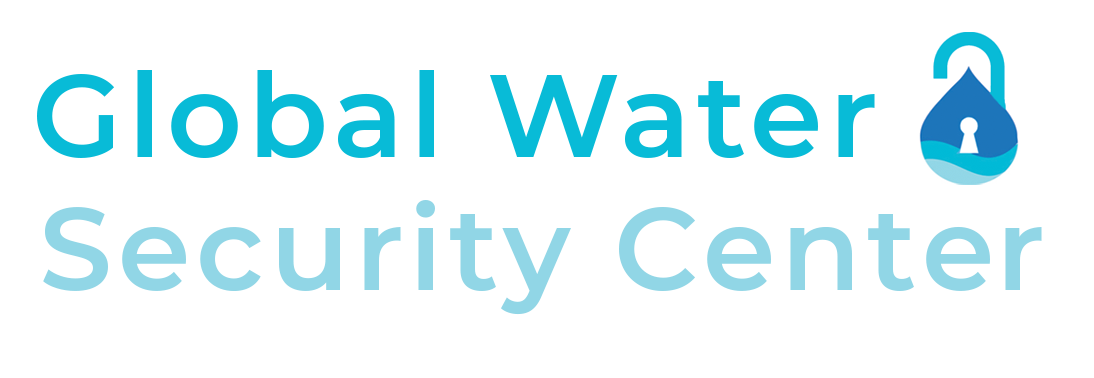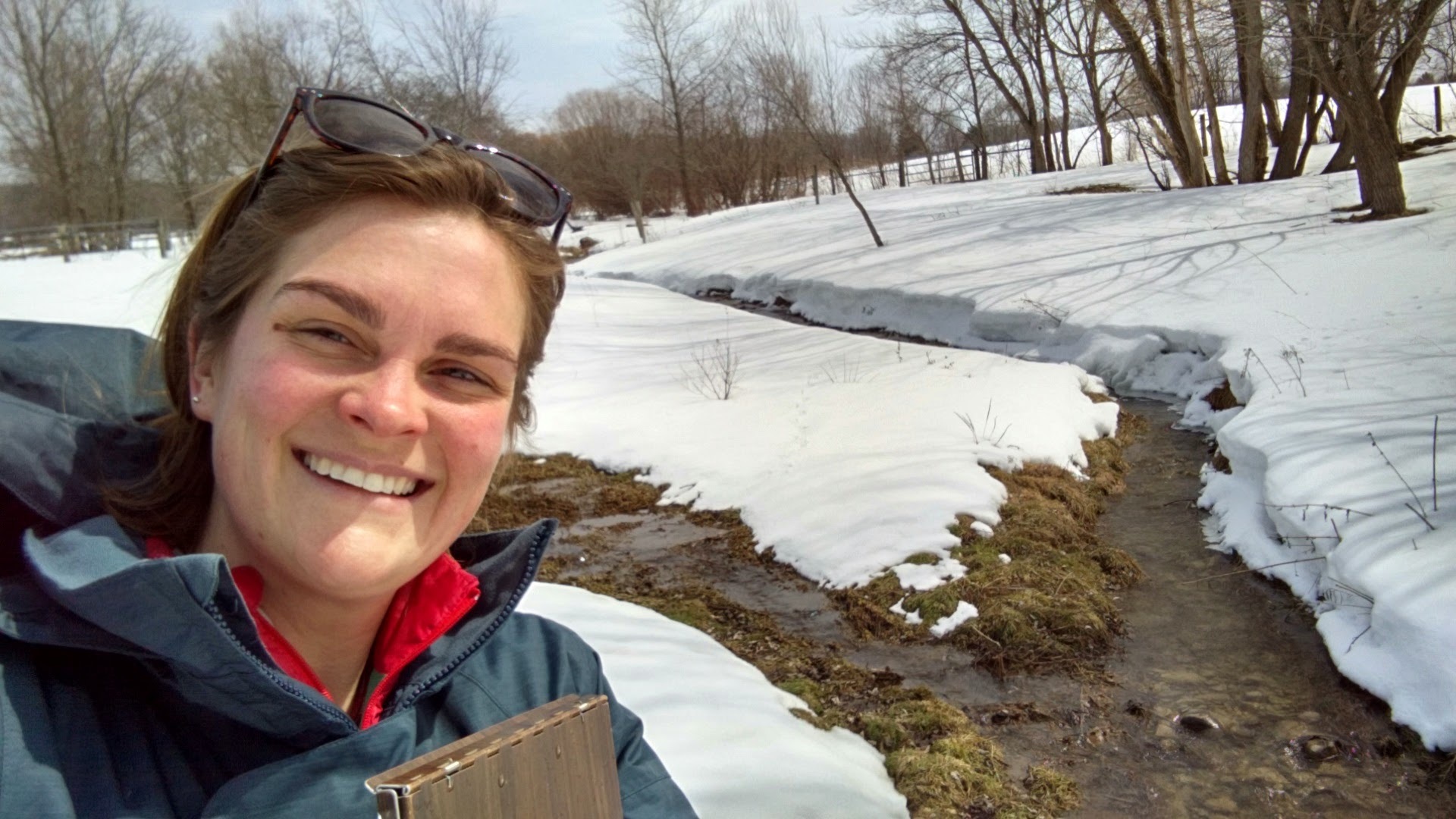This opinion article was written by GWSC Environmental Data Scientist Dr. Erin Menzies Pluer.
During a PhD program, you aren’t presented with many career options outside of academia. There aren’t a lot of other models presented to you, this might be because you are being taught and trained by people who have traveled the path from PhD to professor. As I was wrapping up my graduate work, I knew that that path wasn’t the right one for me. But I felt very unsure about what was the right path. With a few twists and turns, a little exploration, and a lot of reflection about what makes me tick, I found my answer!
As you may have gathered, I work for the Global Water Security Center as an Environmental Data Scientist. I think of my work as existing at the intersection between research and government, between knowledge generation and international development, between climate change modeling and climate policy. I use the expertise and skills I gained in graduate school (and beyond) to provide decision makers in government with the best possible information about global water and climate security so that they can, hopefully, make better, more informed decisions.
So how did I get from a fresh PhD graduate to here? I’ll tell you. But first I want to caveat this discussion by saying that there are a lot of great things you can do with a PhD, including being tenure-track faculty. There is nothing wrong with that path, it just isn’t mine. My goal is to tell you my experience and maybe widen your view of what is out there for a PhD with no idea what to do next.
I went to graduate school because I didn’t know what else to do. It’s maybe not the best reason to go to graduate school, but in my experience, there are a lot of people in grad school trying to figure out where the heck they’re headed. I was wrapping up service in the Peace Corps in Ecuador, and the idea of an office job in an engineering firm (I have a bachelor’s degree in civil/environmental engineering) didn’t appeal to me. I am always looking for opportunities to learn new things, and I always liked school. I was pretty good at it, too. So I applied for graduate school, hoping to buy myself some time to figure things out.
I got a master’s and then a PhD from Cornell University in the Soil and Water Lab in the Department of Biological and Environmental Engineering. I studied hydrology, biogeochemistry, agricultural land use, soil remediation, and even managed to throw a little Spanish lit in there. I loved it! I loved how smart and engaged my fellow graduate students were, I loved thinking deeply about a question or hypothesis, and I loved all the opportunities to explore and learn new things. There were tough parts too, experiments that failed, difficult committee meetings, impossible-to-please reviewers, among other things. But overall, my experience was good, and I even met my now spouse at Cornell. But as I wrapped up my time, I noticed a familiar feeling creeping back: What now? What do I do now?
At first, I followed the path of least resistance: I found a post-doc. I enjoyed it, I liked learning new methodologies, working with new people at a new university, and asking new questions. But it was short, so that feeling never really left. What now?
Determined to chart a more intentional path forward, I spent some time reflecting on what parts of my work I had enjoyed the most or found the most fulfilling. I noticed that I seemed to gravitate toward applied questions, projects with a clear “so what?”, research whose outcomes would have a clear positive impact. At that point, I knew a few things to be true (1) I liked research and learning new things, (2) being a professor didn’t appeal to me, and (3) I wanted my work to have a clear positive impact. I decided to give government work a try. Government officials at all levels, local, state, and federal, take scientific knowledge and translate it into policy all the time. Sometimes they do this well, and sometimes they do it poorly. Maybe I would enjoy being involved in that process and using my scientific expertise to enhance the science to policy pipeline.
There are a number of ways to get involved in government with a PhD. I chose the AAAS Science & Technology Policy Fellowships Program. I served my fellowship in the executive branch of the federal government in the US Agency for International Development (USAID) in the Bureau for Resilience and Food Security (USAID now has a spin-off program called Science for Development Fellowships). A big part of what USAID does is give money to groups doing research related to international development. Part of what I was doing was using my scientific expertise to support technical programs working to alleviate poverty and improve the lives of people around the world.
I enjoyed the work, and it felt like I was having a tangible positive impact on the world. But I missed research more than I thought I would. I missed thinking deeply about a question and investigating a dataset for the answer. I found myself wanting to get closer to the action. I wanted to work for one of the groups that my office was funding. I wanted to be conducting research for development, not just funding it.
When my fellowship ended and I found myself on the job hunt again, I didn’t have that same question, “now what?”, floating around me. I knew what was next: I applied for jobs at the places that my office at USAID had been funding and places like them.
I found my home at the Global Water Security Center. This team is doing exciting and important research to provide our clients with the most up-to-date analyses and information regarding water and climate security around the globe. The skills and expertise I gained in graduate school are on full display here, and I love flexing those muscles again. I get to ask hypothesis driven questions, code up my analyses and figures in R, and think about climate change and hydrology through the lens of international policy and global peace and security. This work is fun! I especially love that we are having a measurable positive impact on the world, ensuring that decision makers have the information they need to make the best decisions possible. That pesky “now what?” isn’t floating around me anymore.
There are so many great ways to conduct applied research that has a positive impact on the world, and I have found my niche in research for policy makers, international development, and water security. What will yours be?

